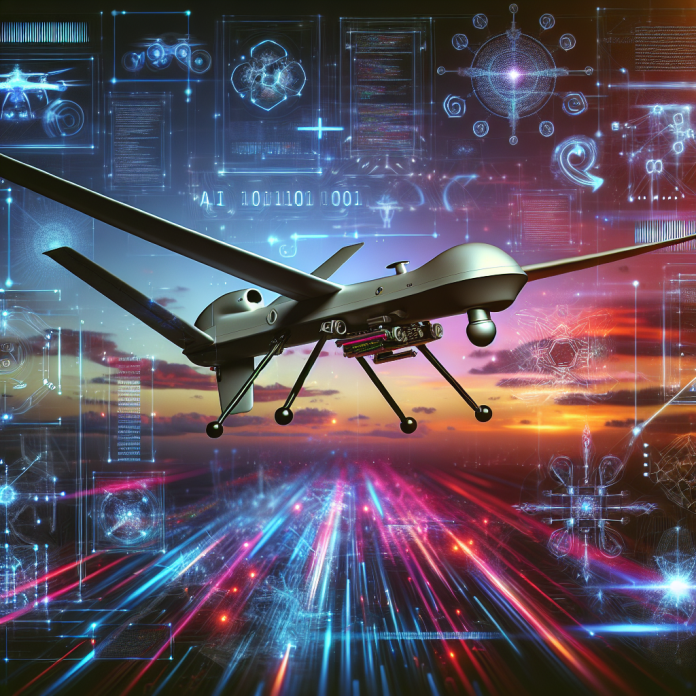Autonomous AI Weapons: Risks & Benefits
In the realm of military technology, a new player has emerged – Autonomous AI Weapons. These advanced machines have the ability to operate without human intervention, making decisions and executing actions on their own. While this may sound like something out of a science fiction movie, the reality is that these weapons are already being developed and deployed by various countries around the world.
### The Rise of Autonomous AI Weapons
The development of Autonomous AI Weapons has been fueled by the rapid advancements in artificial intelligence technology. These weapons are designed to be intelligent, adaptive, and highly efficient in carrying out military operations. From drones that can identify and engage targets on their own to robotic vehicles that can navigate hostile terrain, the capabilities of Autonomous AI Weapons are truly impressive.
Some of the most well-known examples of Autonomous AI Weapons include the US military’s drones, such as the Predator and Reaper. These unmanned aerial vehicles are equipped with AI algorithms that allow them to track and engage targets with precision. In addition, countries like Russia and China have also been investing heavily in the development of autonomous military robots, further escalating the arms race in the AI domain.
### The Risks of Autonomous AI Weapons
While the potential benefits of Autonomous AI Weapons are clear, there are also significant risks associated with their use. One of the main concerns is the lack of human oversight in decision-making. Without human intervention, these weapons could potentially make errors in target identification, leading to unintended casualties and escalating conflicts.
Another risk is the potential for Autonomous AI Weapons to be hacked or manipulated by malicious actors. If these weapons were to fall into the wrong hands, they could be used to carry out attacks with devastating consequences. Moreover, the use of Autonomous AI Weapons raises ethical questions about accountability and responsibility in the event of unintended harm.
### The Benefits of Autonomous AI Weapons
Despite the risks, there are also potential benefits to be gained from the use of Autonomous AI Weapons. One of the main advantages is the ability to reduce human casualties in military operations. By deploying autonomous robots in place of human soldiers, countries can potentially save lives and mitigate the psychological toll of warfare.
In addition, Autonomous AI Weapons have the potential to increase the efficiency and speed of military operations. These machines can analyze vast amounts of data in real-time, identify threats, and respond with precision and accuracy. This level of performance could give countries a strategic advantage on the battlefield.
### The Ethical Dilemma
The development and deployment of Autonomous AI Weapons have raised serious ethical dilemmas that need to be addressed. As these machines become more autonomous and intelligent, questions arise about their moral agency and accountability. Who should be held responsible for the actions of these weapons – the developers, the operators, or the machines themselves?
Moreover, there is a growing concern about the potential for Autonomous AI Weapons to be used for unethical purposes. The lack of human oversight in decision-making could lead to unintended harm and violations of international law. As a result, there is a pressing need for clear regulations and guidelines to govern the use of these weapons.
### The Future of Autonomous AI Weapons
As the capabilities of Autonomous AI Weapons continue to advance, it is clear that they will play an increasingly important role in future military operations. However, it is crucial that steps are taken to mitigate the risks and address the ethical concerns associated with their use.
Countries must work together to establish international norms and regulations governing the development and deployment of Autonomous AI Weapons. By setting clear guidelines and safeguards, we can ensure that these machines are used responsibly and ethically.
In conclusion, Autonomous AI Weapons represent a double-edged sword in the realm of military technology. While they offer the potential for increased efficiency and reduced human casualties, they also pose significant risks in terms of accountability and unintended harm. It is up to policymakers, researchers, and military leaders to navigate these challenges and ensure that Autonomous AI Weapons are deployed in a responsible and ethical manner.

